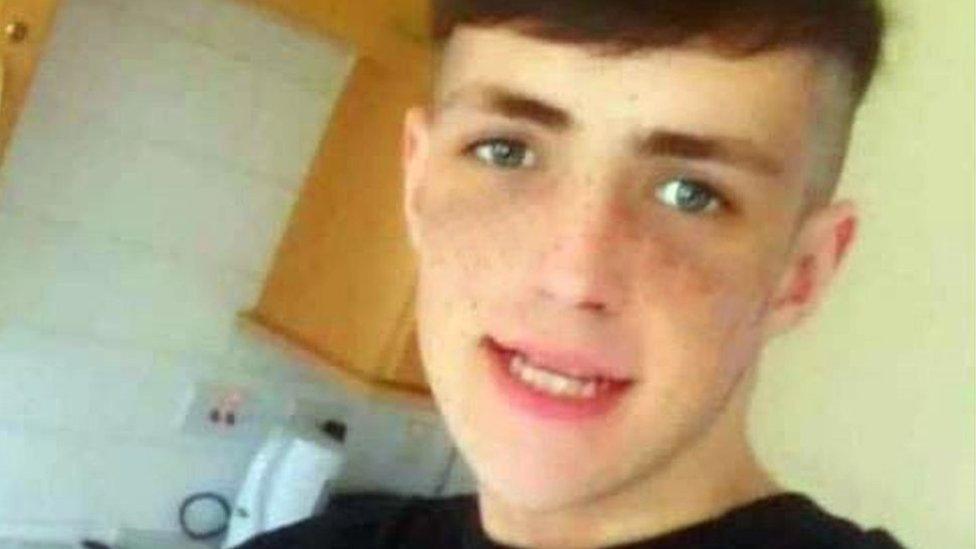Drugs death taskforce chief says punishing addicts must stop
- Published
David Strang says addicts need "treatment, care and support"
The head of Scotland's drug deaths taskforce has called for an overhaul of addiction services and reform of drugs laws to halt overdose deaths.
David Strang made the comments as the Scottish government-established group published its final report., external
Its "Changing Lives" report makes 20 recommendations and 139 action points that it says will help turn around Scotland's record drug death numbers.
In 2020, 1,339 people died as a result of a drug overdose.
That was more than three times the rate of the rest of the UK and the highest in Europe.
Mr Strang - a former chief inspector of prisons and ex-chief constable of Lothian and Borders Police - echoed earlier calls for a "public health approach" to the crisis.
He said: "We've had the Misuse of Drugs Act for 50 years and we've tried locking people up for possession of drugs and we just know that that is not the solution.
"This is an issue of addiction, which needs treatment, care and support, and compassion - not stigmatisation, discrimination and criminalisation."
'New standards'
The drug deaths taskforce was set up in 2019 as Scotland recorded more than 1,000 deaths a year for the first time.
Since then, it has distributed around £14m in funding to projects aimed at driving down deaths. These include the rollout of overdose prevention drug Naloxone to police and other emergency services, as well as the development of new treatment standards.
The Scottish government said it "welcomed" the publication of the final report and it would consider its recommendations in detail.
The group's recommendations include:
Fully implementing new Medication Assisted Treatment (MAT) standards - relating to opiod replacement drugs like methadone - across Scotland within two years
Developing an extensive Naloxone network
Better outreach after non-fatal overdoses
The group also recommends more data sharing between services and policy makers, putting more emphasis on families and those with experience of drug use.
It also calls for the UK government to reform the Misuse of Drugs Act to allow for drug injecting facilities.
But Mr Strang said the task force is "not going as far" as recommending authorities decriminalise drug possession.
He said: "If the problem is people's addiction, then you are not going to solve that by punishing them. That won't act as a deterrent.
"People need treatment, care and support."
He added: "Often, the recovery communities pick up the pieces at the margins. But we are saying they should be much closer to the heart of delivery of services and treatment.
"Often people who have been on that journey and that was a very powerful help for them."
A Home Office spokeswoman said that any death due to drug misuse was a tragedy.
She added: "Our recently published 10-year drugs strategy, external will support people through treatment and recovery, as well as an even tougher response to criminal supply chains and the demand that fuels these illegal markets."

'I was revived nine times in a year'
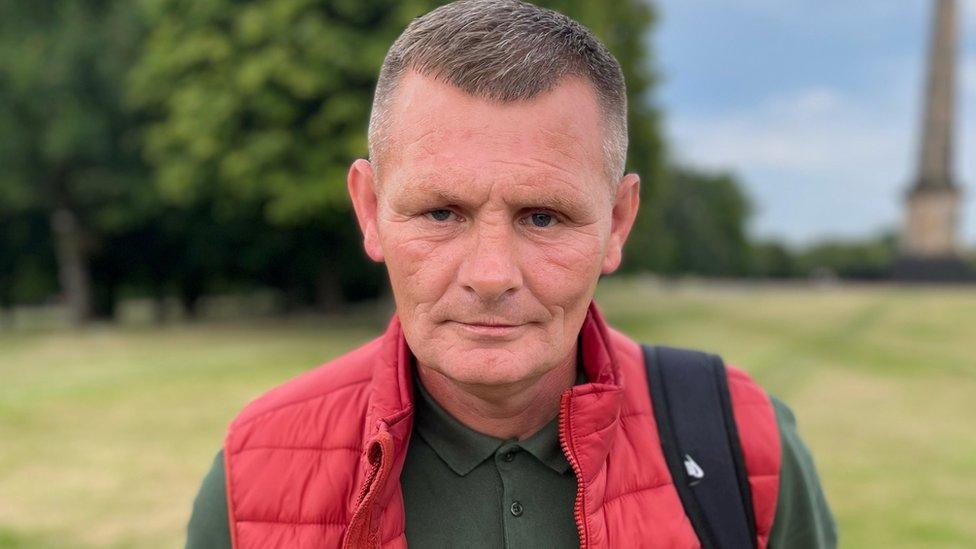
Kevin was addicted to a cocktail of drugs, including heroin, cocaine and street Valium
If it wasn't for Naloxone, Kevin wouldn't be here today.
The 49-year-old was revived nine times by support workers in 2021 after being found unresponsive in Glasgow city centre.
He'd taken cocktails of drugs that included heroin, cocaine and street Valium.
Kevin said: "Some of them were uppers. Some were down. The smack was just to keep me level. The cocaine, I liked the rush. The street Valium I took because they made me forget everything.
"It was horrible getting revived. You come out of it feeling strung out and rotten, so you're just automatically away to get another one [bag of heroin].
"I've since learned that that could be the reason I was overdosing all the time. Although, you've been brought out of it, the drugs are still in your system, so as soon as you go get something else, you're collapsing again."
Eventually, Kevin accepted help from the Simon Community and now volunteers with the charity. He has been sober for nine months and is taken opioid replacement Buvidal.
"The Simon Community is wrap around care," he said.
"It gave me a purpose, it gave me a reason to want to get straight, to keep going, to get my house, to get my life stable, to help somebody else.
"Naloxone kept me breathing, the support made me want to live."

Mr Strang was appointed chief of the taskforce in January following the resignation of Prof Catriona Matheson, who said she was not prepared to do a "rushed job" on the final report.
Prof Matheson told the BBC the latest report was "miles away" from a prioritised, actionable and evidence-based plan which the taskforce was recruited to provide.
She added: "It endorses why I was right to resign rather than be forced to try to deliver a report with no teeth and little constructive direction for those who are now being told to deliver change at local level.
"Those at risk, are still at risk, and deserve better."
Quarterly figures from Police Scotland suggest 2021 may have seen a reduction in drug-related death. However, the official statistics from National Records for Scotland will be released next Thursday.
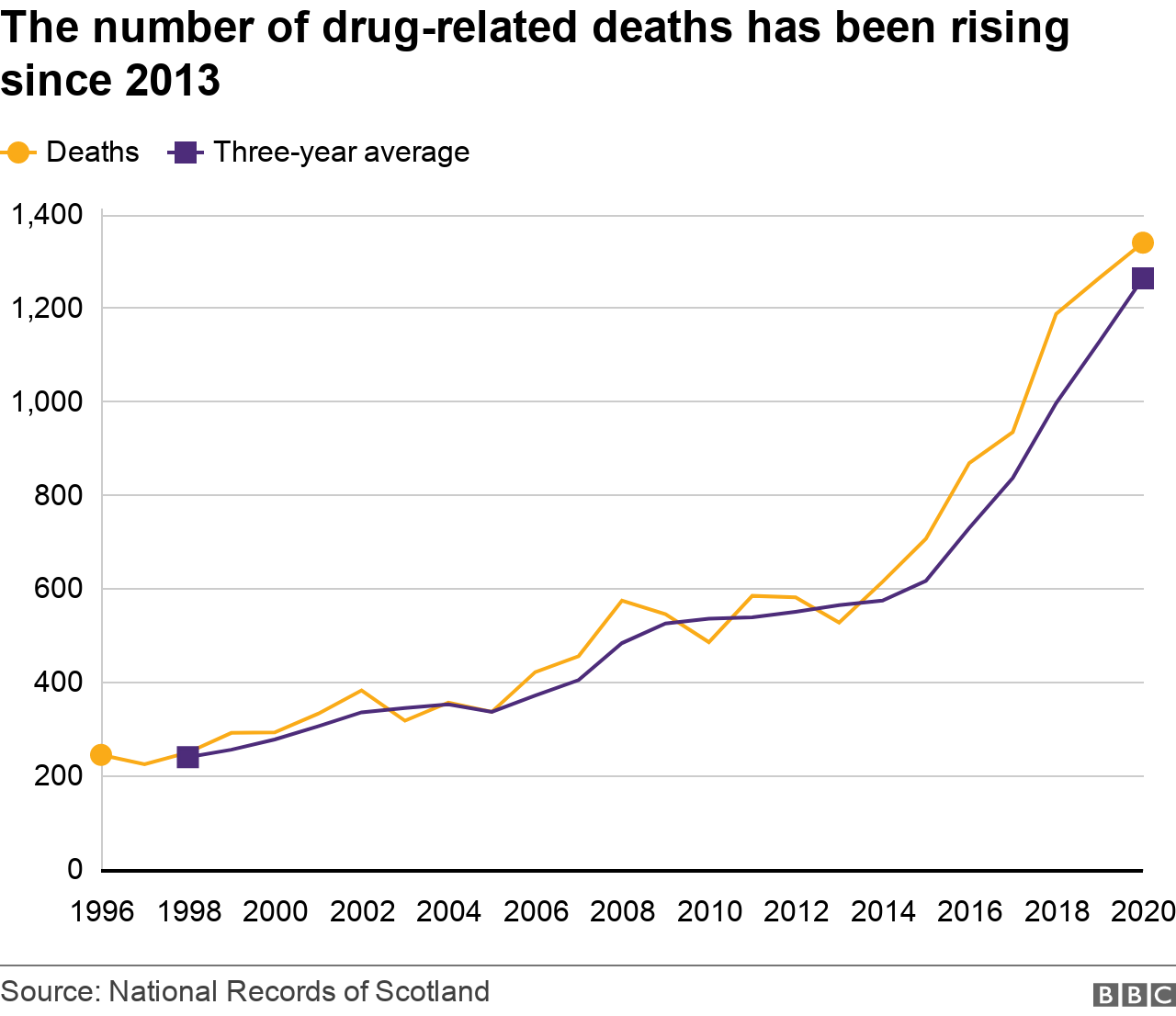
Mr Strang said any reduction would "not take the number of drug deaths below three a day".
He added: "If we are serious about reducing those shocking statistics of the number of people who die from drug overdoses, then we need to implement this report and make the changes that are needed."
Last month, a Public Health Scotland report revealed addiction services are still missing key targets for treatment despite increased investment. It came after a watchdog called for more transparency in how extra money was being spent by services tackling drug deaths.
In January, the previous head of the taskforce, Professor Catriona Matheson, told BBC Scotland she resigned as she was not prepared to do a "rush job" by publishing its final report six months early.
'No time to waste'
Drugs Policy Minister Angela Constance said many of the taskforce's recommendations had already been implemented, but there were areas where the Scottish government wanted to go "far further".
She said the Scottish government had announced £1.1m of new investment into public health surveillance projects to improve understanding of harms.
Ms Constance added: "With the backing of an additional £250m over the course of this parliament, we are focussed on delivery and change on the ground, to provide meaningful improvement in people's lives."
Scottish Conservative leader Douglas Ross criticised the SNP's plans for another independence referendum, which he said used time and resources that should be spent on lives lost to drugs.
He added his party's Right to Recovery bill would be a game changer in the fight against drug deaths - and that Ms Constance could back it to go through Parliament now.
Similarly, Scottish Labour's drug policy spokesperson Claire Baker added there was "no time to waste" and urged the Scottish government to use "every lever at their disposal" to tackle shortcomings raised in the taskforce's report.
Scottish Liberal Democrat drugs emergency spokesperson Ben Lawrie said the Scottish government had been careless over the drugs crisis and his party would continue to push for radical forms.
- Published12 January 2022
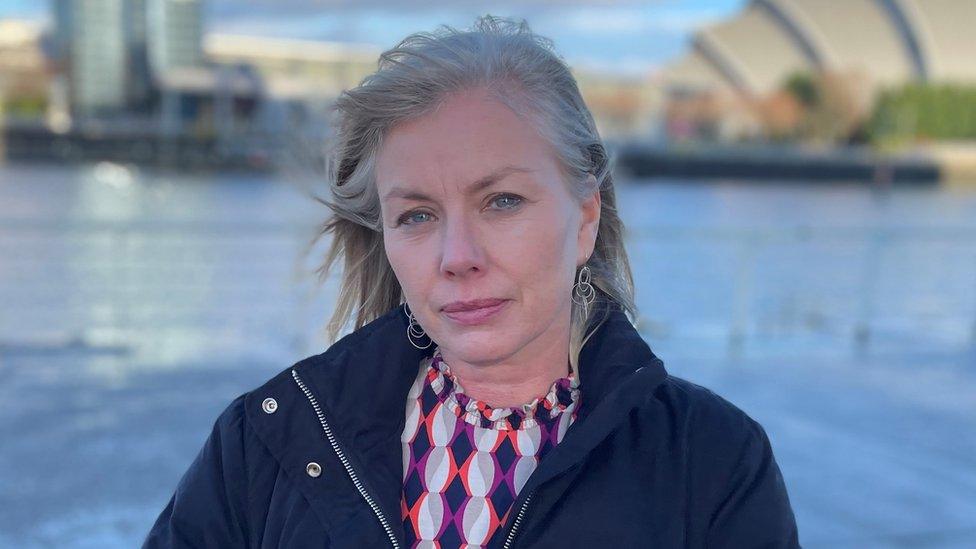
- Published30 July 2021
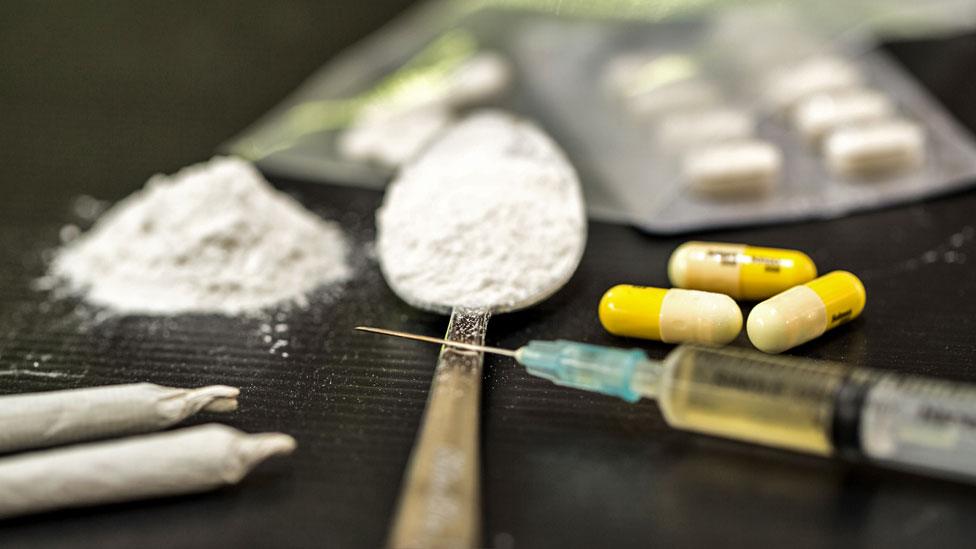
- Published8 April 2021
